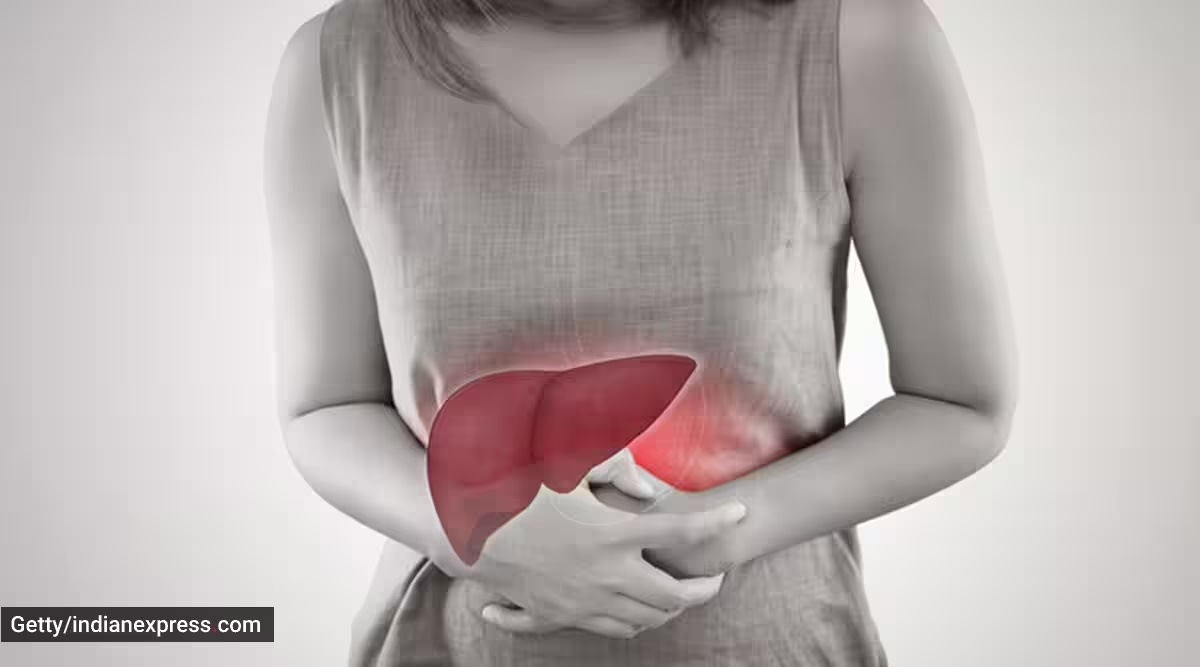📣 For more lifestyle news, click here to join our WhatsApp Channel and also follow us on Instagram
World Hepatitis Day 2023: What is autoimmune hepatitis?
In autoimmune hepatitis, the body’s immune system attacks liver cells, causing the liver to become inflamed.
 World Hepatitis Day is celebrated on July 28 every year. (Source: Getty Images/ Thinkstock)
World Hepatitis Day is celebrated on July 28 every year. (Source: Getty Images/ Thinkstock)Every year World Hepatitis Day is observed on July 28. Four to 43 out of 100,000 adults and about 2 to 10 out of 100,000 children have autoimmune hepatitis, according to the American National Institute of Health.
Dr Naveen Polavarapu, senior consultant gastroenterologist, liver specialist and advanced therapeutic endoscopist & endosonologist at Hyderabad’s Yashoda Hospitals, explained that hepatitis is a general term that means inflammation of the liver, one of the largest and most important organs in the body.
There are many forms of hepatitis. And in autoimmune hepatitis, Dr Polavarapu explained, the body’s immune system attacks liver cells, causing the liver to become inflamed.
According to Dr Akash Shukla, director (hepatology) at Mumbai’s Sir HN Reliance Hospital, autoimmune hepatitis can result in acute liver failure, acute chronic liver failure and chronic hepatitis cirrhosis.
What causes it?
Autoimmune hepatitis may present at any time, at any age and in people of any race or sex, although it is four times more common in females than males, Dr Polavarapu said.
Though it is not clear why autoimmune hepatitis develops, researchers think that some people inherit a genetic disposition that could make them more likely to develop it. Sometimes drugs or infections trigger the development of the disease, according to Dr Polavarapu.
Dr Shukla explained that those suffering from one autoimmune disorder are at the risk of developing another autoimmune disorder. “For example, if somebody has any one of the following disorders: vitiligo (white spots on the body), hypothyroidism, type 1 diabetes, SLE (systemic lupus erythematosus) or celiac disease, then they are at a high risk of having autoimmune hepatitis.”
 Many people with autoimmune hepatitis have no symptoms, according to Dr Polavarapu. (Source: Getty Images/ Thinkstock)
Many people with autoimmune hepatitis have no symptoms, according to Dr Polavarapu. (Source: Getty Images/ Thinkstock)
Another hypothesis, according to Dr Shukla, is something called the hygiene hypothesis. “Those who who have been brought up in extremely clean and sterile environments are at a high risk of developing autoimmune and allergic disorders,” he said.
Is there a way to prevent it?
The best way to reduce autoimmune disorders is allowing a child to grow in a normal environment, Dr Shukla said in reference to the hygiene hypothesis. “Not being paranoid, not being overtly obsessive about sterile environments. Exposure to antigens is important,” he said.
What are its symptoms?
Many people with autoimmune hepatitis have no symptoms, according to Dr Polavarapu. “The disorder is often first detected by abnormal laboratory tests performed for an unrelated reason (such as for a life insurance examination).”
When symptoms are present, the most common symptom is fatigue, he said. “Some people also have additional symptoms, including jaundice (yellowing of the skin or eyes), itching, skin rashes, joint pain, abdominal discomfort, nausea, vomiting, loss of appetite, dark urine, and pale or grey-coloured stools. In its most advanced form, autoimmune hepatitis can progress to cirrhosis (severe scarring of the liver).”
The most important way is to have early diagnosis, Shukla expressed. “Regular check-ups and early diagnosis with appropriate blood tests and sonography fibro scans will help treat these diseases aggressively.”
If you have autoimmune hepatitis…
According to Dr Polavarapu, here are some things you can do to take care of yourself if you have autoimmune hepatitis.
Self care — Taking medication and seeing a healthcare provider on a regular basis can help to ensure that the liver remains as healthy as possible.
Diet — No specific diet has been shown to improve the outcome in people with autoimmune hepatitis. The best advice is to eat a normal, healthy and balanced diet and to avoid becoming obese; obesity can increase the risk of fatty liver disease and may complicate autoimmune hepatitis.
Alcohol — Alcohol should be avoided since it can cause fatty liver disease and other liver damage. All types of alcoholic beverages can be harmful to the liver, including beer, wine and hard liquor. Even small amounts of alcohol can worsen liver disease.
Herbal medications — There are a number of claims, particularly on the internet, that herbal medications can improve liver health. However, no single or combination of herbs has been proven to improve outcomes in people with autoimmune hepatitis. Some herbs can cause serious liver damage, and some have been found to trigger autoimmune hepatitis. For this reason, Dr Polavarapu does not recommend any herbal treatment for liver disease.
Untreated autoimmune hepatitis can cause scarring of the liver and ultimately lead to cirrhosis and liver failure. Fortunately, proper treatment can prevent scarring and cirrhosis in most people, according to Dr Polavarapu.
“Approximately 10 to 40 per cent of people with autoimmune hepatitis go into remission and no longer need medications for their condition. However, only approximately 20 to 30 per cent of these people stay in remission. Thus, most people need either continuous therapy or additional rounds of medication to treat ongoing disease,” he said.
📣 For more lifestyle news, follow us on Instagram | Twitter | Facebook and don’t miss out on the latest updates!
📣 For more lifestyle news, click here to join our WhatsApp Channel and also follow us on Instagram



- 01
- 02
- 03
- 04
- 05
























